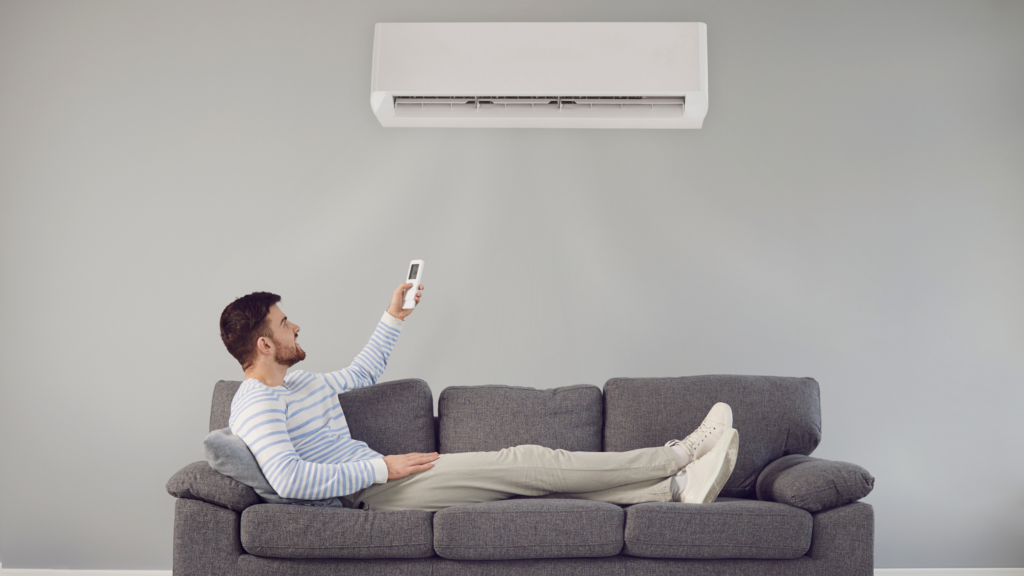Air conditioning (AC) is a staple in many homes, offices, and public places, especially in warmer climates. For people with asthma, AC can be both a blessing and a potential trigger. While it helps control indoor air quality and reduces humidity, it can also circulate allergens and irritants that may worsen asthma symptoms. In this blog, we explore the benefits and risks of air conditioning for asthma patients and offer tips on how to use it effectively.
How Air Conditioning Can Help Asthma Patients
1. Reduces Humidity and Prevents Mold Growth
High humidity levels can promote mold and dust mites, both of which are common asthma triggers. Air conditioning helps maintain indoor humidity at an optimal level (around 30-50%), preventing mold spores from growing and reducing dust mite populations.
2. Filters Out Allergens and Pollutants
Many modern air conditioning systems come with built-in air filters that trap airborne allergens such as pollen, dust, and pet dander. This can significantly improve indoor air quality, making it easier for asthma patients to breathe.
3. Keeps Outdoor Pollutants at Bay
Air-conditioned spaces reduce the need to open windows, keeping outdoor pollutants like vehicle emissions, pollen, and industrial smog from entering indoor environments. This is particularly beneficial in cities with high air pollution levels.
4. Provides Relief from Heat-Induced Asthma
For some asthma patients, hot weather can exacerbate symptoms, leading to increased breathlessness and wheezing. Air conditioning helps maintain a comfortable indoor temperature, reducing the risk of heat-induced asthma flare-ups.
Potential Downsides of Air Conditioning for Asthma
1. Circulation of Dust and Allergens
If AC filters are not cleaned or replaced regularly, they can accumulate dust and allergens, which may get recirculated in the air and trigger asthma attacks.
2. Dry Air Can Irritate Airways
Air conditioning can sometimes make indoor air excessively dry, leading to throat irritation and dry nasal passages. This dryness can aggravate asthma symptoms and make breathing uncomfortable.
3. Sudden Temperature Changes
Moving from a hot outdoor environment to a cold, air-conditioned space can cause airway constriction in some asthma patients, leading to breathlessness or discomfort.
4. Exposure to Mold in AC Units
If AC units are not maintained properly, mold and mildew can grow inside them. When the system is turned on, mold spores may be released into the air, triggering asthma symptoms.
Tips for Using Air Conditioning Safely with Asthma
- Regularly Clean or Replace Filters: Ensure that AC filters are cleaned or changed every 1-3 months to prevent the accumulation of dust and allergens.
- Maintain Optimal Humidity Levels: Use a hygrometer to monitor indoor humidity and consider using a humidifier or dehumidifier if needed.
- Service AC Units Periodically: Have professionals clean and maintain your air conditioning system to prevent mold buildup.
- Avoid Direct Cold Air Exposure: Position air vents so that cold air does not blow directly onto you, as this can cause airway irritation.
- Keep Windows and Doors Closed in High-Pollution Areas: If you live in an area with poor outdoor air quality, keep windows closed while the AC is running to avoid letting pollutants in.
- Stay Hydrated: Drink plenty of water to counteract the drying effects of air conditioning.
My Personal Experience
For me, air conditioning is generally helpful in managing my asthma, but I take care of two important things. First, I avoid direct cold air blowing on my face, as it can trigger airway irritation. Second, I am cautious about sudden temperature changes when stepping out of an air-conditioned room into the heat outside, as this can cause breathing discomfort. By managing these factors, I can enjoy the benefits of air conditioning without aggravating my asthma.
Conclusion
Air conditioning can be both helpful and harmful for asthma patients, depending on how it is used and maintained. When properly managed, AC can improve indoor air quality, reduce humidity, and provide relief from heat-induced asthma. However, neglecting AC maintenance can lead to exposure to dust, mold, and overly dry air, which may aggravate asthma symptoms. By following proper AC maintenance and usage practices, asthma patients can enjoy the benefits of air conditioning while minimizing potential risks.
Please share your experience in the asthma friend community.







